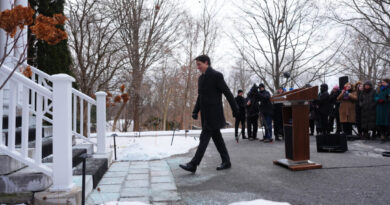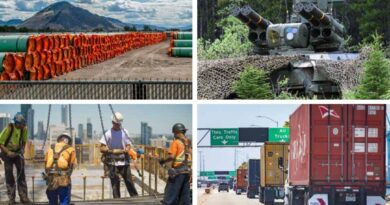The Opinions of Australia’s Fastest-Growing Migrant Group on the Election
Indian-born residents now make up 2.9 percent of Australia’s total population, and nearly 10 percent of the overseas-born population.
Australian leaders have been navigating the complex needs of the country’s increasingly diverse voter base amid the tilt to the May 3 election day.
According to 2023–24 data from the Australian Bureau of Statistics (ABS), one group became the largest new migrant community in the country: the Indian-Australia diaspora, which overtook China as the leading source of migrants after the pandemic.
At the end of June 2022, 753,520 Indian-born people lived in the country—double the 355,380 recorded in 2012.
Indian-born residents now make up 2.9 percent of Australia’s total population and nearly 10 percent of the overseas-born population, making them the second-largest migrant group after the British.
With this sharp demographic rise comes another change to the needs of the voting public. But what are their views on the current electoral contest?

A young boy enjoys the Diwali light show put on by residents of Phantom Street, Nirimba Fields in western Sydney on Nov. 1, 2024. The Diwali festival, one of Hinduism’s biggest, is celebrated by Indian-origin people across the world. Brook Mitchell/Getty Images
Being Blamed for the Housing Crisis
For many Indian-Australians, particularly those long-settled in the country, there are concerns that the housing debate is too heavily focused on migration.
“Politicians have been attacking migrants for the mess they’ve created,” said Ayush Chawla, a 43 year old IT engineer from Werribee in Melbourne, which swung heavily away from Labor during the recent state by-election.
Chawla pointed to Opposition Leader Peter Dutton’s recent pledge to cut the migration intake to curtail surging demand for property and rental properties. The Labor government has also committed to cuts to temporary student visas.
Tanveer Sheikh, 42, an environmentalist from Vermont South in Melbourne said that Australia needed better public discourse on the benefits of migration.
“Even our international students—who pay hefty fees and work jobs locals often won’t—are being vilified,” she said, referring to plans to tighten student visa rules.

A man holds his young son on his shoulders during Diwali celebrations at a street festival in the suburb of Wentworthville in Sydney, Australia, on Oct. 29, 2022. Lisa Maree Williams/Getty Images
10 Year Wait Lists: Calls for More Clarity on Visa Rules
While less headline-grabbing than the migration intake, parental visa reform is also a personal issue for many Indian-Australians.
Long wait times, high costs, and uncertain pathways leave some families in limbo and spread across different continents.
Manish Jain (39), a technology consultant and Canberra resident, said he had to wait nearly a decade to bring his aging parents to Australia.
“The government should make it cheaper and faster for citizens—who’ve been paying taxes for at least 10 years—to bring their parents here permanently with medical insurance to ease the burden on the health system,” he told The Epoch Times.
There are concerns cuts to the permanent migration intake could result in caps on parental visas. Labor has not ruled out its own cuts.
More Cultural Facilities Could be Built
Some say more can be done to develop institutions for cultural events
Sydney resident Parmeshwar Kumar (37) says his daughters must travel nearly an hour every Sunday to attend Hindi language classes in Parramatta.
“I live in eastern Sydney, which doesn’t offer many options for Indian language classes. This eats up most of our Sundays,” he told The Epoch Times.

An aerial view of the Diwali light show put on by residents of Phantom Street, Nirimba Fields in western Sydney on Nov. 1, 2024. The Diwali festival, one of Hinduism’s biggest, is celebrated by Indian-origin people across the world. Brook Mitchell/Getty Images
Canberra resident and IT professional, Vaibhav Mathur, said that even in Canberra, communities struggle to find appropriate venues for cultural gatherings.
“We celebrate Diwali in school halls because there’s no dedicated space. We’ve long asked for a multicultural community centre.”
At a Holi celebration in March, Prime Minister Anthony Albanese announced support to establish the country’s first Hindu school in Sydney.
A week later, the Coalition responded with its own promise: $8.5 million towards the same initiative.
More Community Members Could Run for Office
Mathur says it would also be nice to see more community members run for office.
“In 2023, 30.7 percent of Australia’s population was born overseas, but this multicultural group is still not adequately reflected in our parliament,” he said.

Sydneysiders celebrate Diwali at a street festival in the suburb of Wentworthville in Sydney, Australia, on Oct. 29, 2022. Lisa Maree Williams/Getty Images
“While I’m not in favour of country-specific representation, we do need someone to voice the concerns of this large and diverse immigrant population.”
That may be changing, however.
Close to 50 candidates of Indian background are standing in the upcoming elections across party lines, including Labor’s Zaneta Mascarenhas (Swan) and Senator Varun Ghosh (WA).
The Liberals are also fielding Rattan Virk (for the electorate of Greenway), Satish Patel (Fraser), and Jacob Vadakkedathu as the lead ACT Senate candidate.
Beyond the two main parties, Indian-origin Australians are contesting seats under the banners of the Greens, One Nation, Animal Justice, Family First, and others—as well as running as independents.
How many of them will finally make it to Canberra? We’ll know after May 3.





